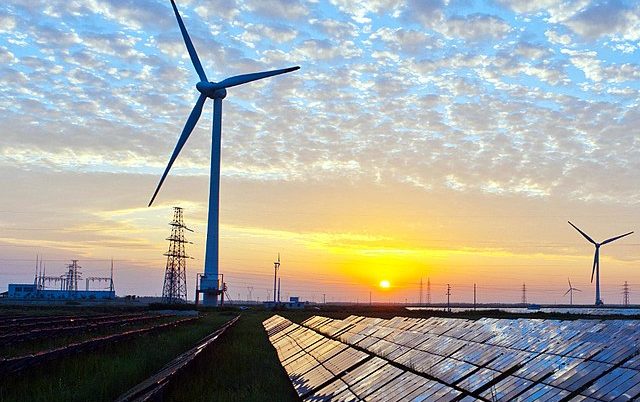2023: The Near Future of Renewables
The future of energy is looking greener.
By 2024, almost 33 percent of the world’s electricity is forecast to come from renewables, with solar photovoltaic (PV) accounting for almost 60 percent (or at least 697 gigawatts) of expected growth, according to Renewables 2019, a report from the International Energy Agency published in November 2019. Onshore wind (309 GW), hydropower (121 GW), offshore wind (43 GW) and bioenergy follow (41 GW).
Drastically lower production costs, growing concern around climate change, evolving global energy policies and increased pressure from investors on companies to adopt environmental social governance (ESG) polices are pushing renewables into the mainstream.
This year alone, more than 12 large U.S. coal companies had filed for bankruptcy as of October 2019, in a signal of the shifting landscape. In Australia, the National Electricity Market showed that on Nov. 6, renewables reached a milestone—powering 50 percent of the country’s main electricity grid. Rooftop solar provided nearly 24 percent, followed by wind (about 16 percent), large-scale solar (about 9 percent) and hydro (about 2 percent).
In Germany, a Norwegian company is running one of Europe’s largest power generation facilities—and doing it virtually, in an innovative example of how the sector could overcome challenges that arise when there’s little wind or sun to generate power. The plant, which according to CNN Business could power 5 million homes, uses a cloud-based artificial intelligence program to link more than
1,500 wind, solar and hydropower plants across the continent with electricity generation and storage facilities like batteries.
Renewables used to just be the more sustainable—if more expensive—option. By 2023, they will actually make good business sense.
In 2023: The Near Future of Renewables, we present our predictions for how the sector will reimagine itself by capitalising on this scalable green wave, based on research and collective input from BDO’s Natural Resources leaders around the world. In addition, we highlight a top prediction from each of the practice leaders in nine countries: Australia, Canada, France, Malaysia, New Zealand, Portugal, South Africa, the United Kingdom and the United States.
Top predictions for the global renewable market by 2023 include
- The future of solar is bright– Although slowed slightly by geopolitical tension and trade uncertainty, solar capacity will continue to grow over the next several years—surpassing a terawatt of global solar power generation by 2023.
- Storage takes centre stage– Storage will take its rightful place as a key grid asset by 2023, helping to increase the reliability and resilience of increasingly decentralised power systems. The adoption of diverse energy storage solutions, including longduration batteries for utility-scale renewable integration, will grow by at least 30 percent year-over-year leading up to 2023.
- No headwinds for wind power– Wind power will continue to grow, with increased storage capabilities developed specifically for on and offshore wind, helping to improve the economics and productivity of such projects. Half of the 2023 global investments in wind will go towards offshore technology and projects.
- The energy convergence continues– Natural resources companies, from mining to oil and gas, will continue to invest in clean or renewable energy technology, including carbon capture, utilisation and sequestration—both to diversify their portfolios and reduce their corporate carbon footprints. By 2023, 20 oil and gas majors will have joined the Oil and Gas Climate Initiative, up from 13.
- Cleantech investments soar– Following a cycle of disappointing returns, private equity and venture capital will return to the cleantech space in full force. Whether called cleantech or climate-tech, the regulatory, economic and scientific impetus for these technologies will see $600 billion dollars in global private investment by 2023.














Leave a Reply